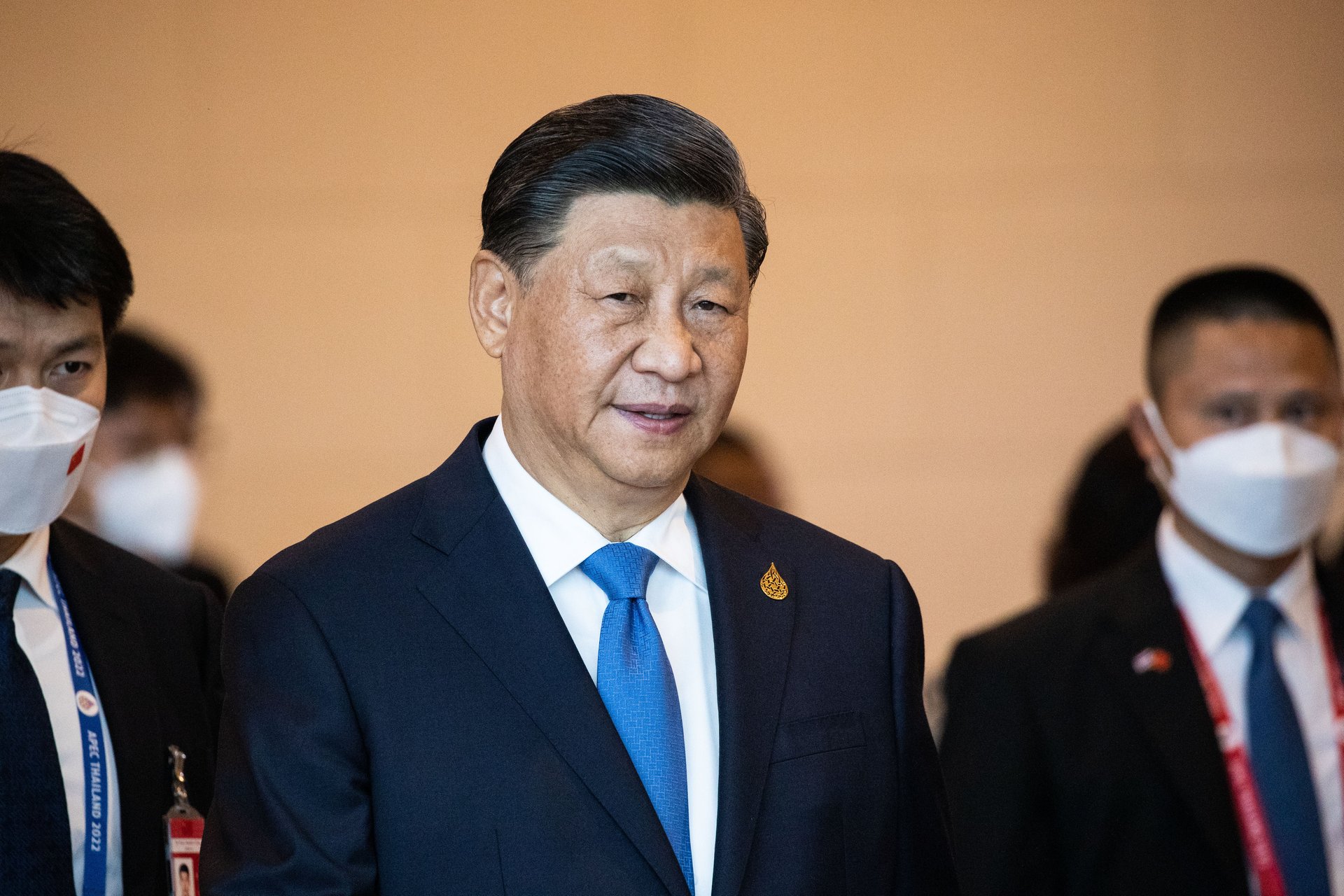🌏 Xi in Saudi Arabia
Plus: Microsoft is going against big tech’s anti-union grain


Good morning, Quartz readers!
Here’s what you need to know
Xi Jinping is headed to Saudi Arabia. The Chinese president has plans to meet with crown prince Mohammed bin Salman and attend three summits this week to bolster regional ties and talk trade and investment.
Hungary vetoed the EU’s aid package to Ukraine. Prime minister Viktor Orbán has been accused of blocking the €18 billion ($19 billion) loan to gain leverage in securing funds for Hungary.
Indian authorities halted the export of 27,000 Vivo phones. Officials have alleged the Chinese company misdeclared a shipment manufactured by its India unit.
An oil traffic jam has formed in Turkish waters. The country’s authorities have started asking ships seeking transit to provide proof-of-insurance, holding up an estimated 18 million barrels of crude oil.
TSMC is tripling its chip investment in the US. The Taiwan company has committed to $40 billion and the creation of a second semiconductor factory in Arizona. Meanwhile, Japan’s Rapidus and Belgium’s Imec have signed a chip cooperation deal.
The EU will ban goods linked to deforestation. New rules limiting the import and sale of many household products are expected to also cut global emissions by 31.9 million metric tons annually.
Elon Musk’s Neuralink is being investigated for animal rights abuse. A report claims that in four years the medical company killed 1,500 animals used in testing.
The EU took aim at Meta’s targeted ad model. Privacy regulators have ruled that the tech giant cannot use its terms of service to gain user permission for running ads based on personal data, according to the Wall Street Journal.
What to watch for

Ahead of the COP15 summit on biodiversity conservation, which kicks off today (Dec. 7) in Montreal, policymakers are looking for creative methods to monetize the fight against species loss. One idea is the use of “biocredits,” a system where conservation groups can convert their efforts into tradable credits, which companies can then buy to fulfill sustainability requirements.
It’s a divisive proposal. Some environmental economists (pdf) argue that biocredits could attract private sector funding towards the prevention of further biodiversity loss, which could reach a required sum of nearly $1 trillion per year by 2030. However, more than 100 academics and environmental groups (pdf) have written in an open letter that replacing environmental regulations with free market incentives would “promote a meaningless monetary valuation of nature.”
The debate over whether nature is intrinsically valuable or needs a price tag is likely to be on the minds of COP15 delegates, throughout the conference and beyond.
Microsoft is going against big tech’s anti-union grain
Microsoft is an outlier among its tech peers in not quashing unionization efforts. Nearly 300 quality assurance workers for its gaming subsidiary ZeniMax Online Studios are voting to join the Communication Workers of America (CWA), the largest communications and media union in the country with over 700,000 members. So far, Microsoft has been playing nice, and seems to be coming out on top.
But it’s not entirely altruistic—the move is likely a bid to convince the Federal Trade Commission (FTC) to greenlight its nearly $70 billion purchase of embattled video game firm Activision Blizzard.
Currying favor from a politically powerful union, one that was once among the vocal critics of the Microsoft-Activision deal, has yielded some benefits, with the CWA now advocating in favor of the acquisition. If the unionization vote passes, it’ll be a landmark win for more than one reason: It would create the largest video game industry union in the US, and the first official US union under Microsoft.
We’re obsessed with fake cakes
You’ve probably seen the viral video that made trompe l’oeil cakes famous: An unassuming red Croc sits atop a table, when, suddenly, a knife appears! Someone cuts into the Croc! And lo, it is not a Croc, but a cake.
The phrase trompe l’oeil, or “deceives the eye,” doesn’t just apply to cakes—it’s used widely in a variety of art forms, where the illusion of three-dimensional space is created on a two-dimensional object. But what is it about this era of internet misinformation and dubious content that has made videos of bakers slicing into corn cob-shaped cakes so tantalizing?
✦ We’ll cut through the layers in our next Weekly Obsession email. Subscribe today (it’s free!) to make sure you get it. And while you’re at it, get exclusive Quartz content by becoming a member—we’re offering a 50% off deal, no fakery here.
Surprising discoveries
Grandma was right about the cold making you sick. A lower temperature does lead to a lower immune response.
Hot beer is all the rage in China. Brew it up with some orange slices and jujubes and it’s the perfect drink for watching a World Cup match.
We now know why the southern hemisphere is so stormy. And why the northern hemisphere is 24% more chill.
The “Rosetta Stone” of dino fossils was unearthed. A 100 million-year-old plesiosaur skull was found in Queensland, Australia.
Swear words have similarities across languages. You’re a heck of a lot less likely to find an L, R, W, or Y sound in an expletive.
Our best wishes for a productive day. Send any news, comments, collectible beer mugs, and plesiosaur plushies to [email protected]. Reader support makes Quartz available to all—become a member. Today’s Daily Brief was brought to you by Ananya Bhattacharya, Diego Lasarte, Tim McDonnell, Julia Malleck, and Morgan Haefner.